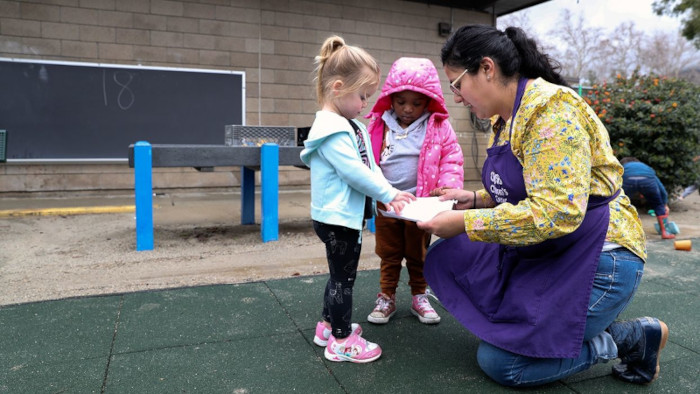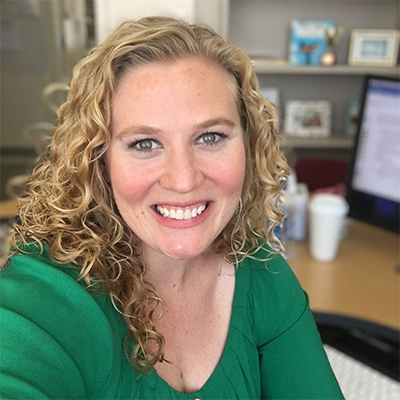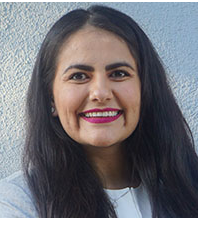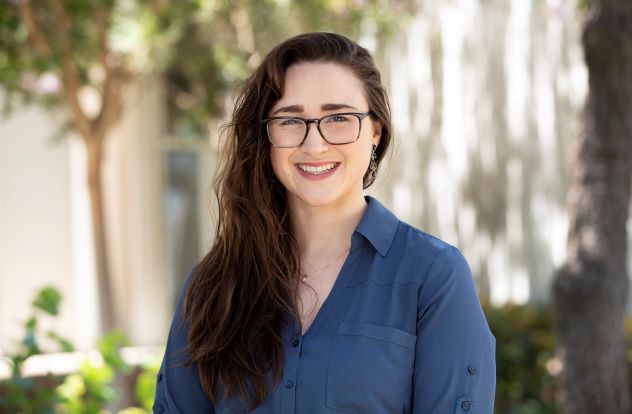Exploring racial equity in early childhood education
A grant of nearly $168,000 was awarded to the Institute for Child Development and Family Relations at CSUSB to explore potential race inequity and experiences in racism with the early childhood workforce in San Bernardino County.


Research shows that as early as 6 months, children start grouping people by the color of their skin and children as young as 3 years old can start showing bias toward preferred skin color.
“The idea around being ‘colorblind’ doesn’t exist,” says Amy van Schagen, associate professor in the child development department at Cal State San Bernardino. “I think that it’s something some people say, but they don’t necessarily know that there’s research around it that shows otherwise.”
Van Schagen is a researcher who examines racial, ethnic and cultural diversity; teacher development and work environments; and access to high quality early childhood education for marginalized groups. With her extensive background, she decided to explore potential race inequity and experiences in racism with the early childhood workforce in San Bernardino County.
“It is my responsibility in my position to ensure areas of inequities based on race are identified,” she says.
Her work with Quality Start San Bernardino County, a nonprofit organization working to raise the quality of early learning programs in the county, influenced her to dig deeper in her research.
“There are lots of players at the table, and something that came up last year was thinking about whether our Quality Start initiatives are equitable, and if they have embedded racial inequities,” she explains. “That was something we wanted to think about – more largely within early childhood education within our county.”
Thanks to First 5 San Bernardino, a government organization that serves children prenatal through age 5 and their families, a grant of nearly $168,000 was awarded to the Institute for Child Development and Family Relations at CSUSB to explore the topic.
The project’s principal investigator, van Schagen developed a survey and an interview component, conducted by student research assistants, for early childhood educators in San Bernardino County. This includes childcare teachers, assistant teachers and directors, who work with infants to children up to 5 years old.
“What we’re really looking at is perceived experiences with racism within early childhood education within their workplace,” van Schagen says. “What are teachers, directors, assistant teachers of color reporting and what are they experiencing?”
The reactions of those who have been asked to participate, she says, have been understandably mixed.
“There are some folks that have reached out individually and thanked the team for doing this and exploring this avenue; we’ve also had others who are hesitant,” she says. “That’s not super surprising since it is a sensitive topic, and it can be a really hard topic for some folks to talk about.”
Other topics explored in the surveys and interviews include microaggressions, mental health, wages and how teachers feel about discussing racism inside the classroom.
“It’s one piece of the puzzle,” van Schagen says. “We’re really thinking about racial equity and being purposeful and thinking about the whole system of early childhood education. Being able to think about what these results mean, coming up with an action plan, and sharing it with both First 5 San Bernardino and Quality Start San Bernardino.”
Together, with First 5 and Quality Start, they will analyze the results once the survey concludes at the end of September, address the microaggressions and the systemic inequities they may be seeing, and create meaningful work that can create change.
The next piece of the puzzle, van Schagen explains, includes creating workshops and education supports for teachers currently in the field. Eventually, she would like to explore higher education and see how – or if – institutions in the county with childhood development and childhood-focused programs are being purposeful and ensuring that biases aren’t seeping into their curriculum.
“There are multiple moving parts that we see, and this will continue in the years to come, because we can’t solve racial equity issues overnight,” van Schagen says. “It’s a long-term process that we really want to be intentional about.”
CREATE Awardees
Five proposals from faculty teams were selected for funding in the 2022-2023 academic year. These dynamic programs will impact student success and will help the CSU reach its Graduation Initiative 2025 goals.
Decreasing Equity Gaps in Degree Completion by Empowering CSU Students, Faculty, and Staff through Action Projects informed by Intergroup Dialogue
Our program will decrease graduation gaps by taking a holistic approach that centers social justice and requires inclusion of university stakeholders including students, staff, and faculty. We will tackle equity gaps through a two-semester online program including (1) training in intergroup dialogue (IGD) (Gurin, Nagda, & Zuniga, 2013; Zúñiga et al., 2014; Kelly, et al., 2022), which is grounded in contact theory (Alport, 1954) and social justice education, and (2) action implementation to move the needle toward higher degree completion at the 10 Southern California CSU campuses. IGD can equip students, faculty, and staff with skills to not only critically recognize barriers that result in achievement gaps, but empower collective action to address these gaps. Participants trained in IGD will affect many other constituents at their campuses by carrying out action projects to tackle the Graduation Initiative 2025.
 Dr. Manpreet Dhillon Brar | Principal Investigator
Dr. Manpreet Dhillon Brar | Principal Investigator
Assistant Professor
Department of Child Development
California State University, San Bernardino
Dr. Manpreet Dhillon Brar (pronouns: she/her) is a trained facilitator of intergroup dialogue and passionate educator. She has a doctorate from the University of California, Los Angeles (UCLA) in Education with an emphasis in Human Development and Psychology (2020). She has published and presented her work on civic engagement, dialogue, societal “isms” and intergroup relations. Having completed training for intergroup dialogue facilitation at the University of Michigan (2013) and at UCLA (2015), Dr. Dhillon Brar has facilitated workshops, classes, and training on diversity, equity, inclusion, and intergroup issues at multiple colleges, schools, community and private institutions. Dr. Dhillon Brar’s intergroup dialogue work includes addressing global and international audiences as well such as through educational study abroad trips with undergraduate students to conflict-ridden regions in the Middle East (2017-2019) and fellowship with the United Nations Development Programme in India (2017). Dr. Dhillon Brar is currently an Assistant Professor of Child Development at California State University, San Bernardino, where she serves majority first generation college students in hopes of reducing equity gaps and advancing inclusion through mentorship, teaching, and advocacy. As a diversity thought leader with a decade of experience, Dr. Dhillon Brar continues to serve as an equity and inclusion consultant for various projects and entities such as the City of Los Angeles and UC Adolescent Consortium.
Dr. Stacy Morris | Co-Principal Investigator
Assistant Professor
Department of Child Development
California State University, San Bernardino
Stacy Morris, Ph.D. (pronouns: she/her) is an Assistant Professor of Child Development at California State University, San Bernardino. She has a doctorate from Boston College in Applied Developmental and Educational Psychology, and completed a postdoctoral fellowship at Arizona State University in the T. Denny Sanford School of Social and Family Dynamics. She has received training in intergroup dialogue through the Universal Human Rights Initiative (2022) and has done work in university settings on examining and addressing inequities. Dr. Morris’ research and community involvement centers on supporting community engagement in adolescents and young adults and working toward dismantling inequities through building understanding of systems of inequity and motivating collective action. She has taught, published, and presented on issues related to equity, first-generation college students, and fostering an understanding of critical societal issues.